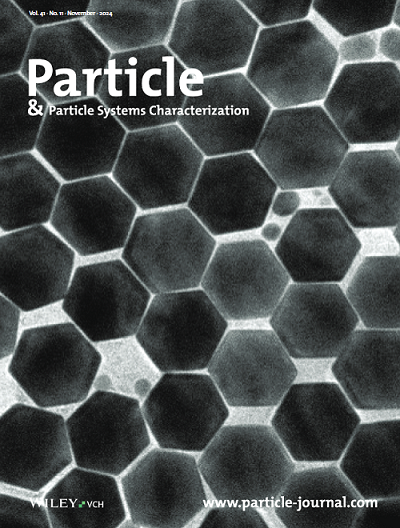纳米晶体:治疗皮肤病的多元疗法
IF 2.7
4区 材料科学
Q3 CHEMISTRY, PHYSICAL
引用次数: 0
摘要
皮肤病是全球不同地区最常见的疾病。与其他途径相比,外用给药途径具有避免首过代谢、剂量低、停留时间长、不脱靶等优点。皮肤是选择性渗透重要分子进行治疗给药的机械屏障。考虑到皮肤结构的复杂性,将治疗药物输送到目标部位需要复杂的方法,如纳米技术辅助治疗输送。纳米技术与皮肤疗法的组合方法路线图已在临床和上市产品中得到证明。目前,市场上出现了各种药物辅助工具,如纳米晶体(NC)、纳米颗粒、纳米乳液、纳米胶束、纳米脂质载体和混合纳米载体。在所有其他纳米载体中,纳米晶体因其制备方法简便、可重复性好、辅料浓度低、治疗负荷能力强等优点而优于其他纳米载体。最近的文献数据表明,NCs 在局部给药方面取得了突破性进展。这些研究成果表明,NCs 可用于输送理化特性受到影响的分子,如溶解性、稳定性、毒性和生物利用度等问题。本文章由计算机程序翻译,如有差异,请以英文原文为准。
Nanocrystals: A Multifaceted Regimen for Dermatological Ailments
Skin disorders are the most common apprehension worldwide among different regions of the world. Topical route of administration offers benefits over other routes such as avoidance of first‐pass metabolism, low dose, longer residence time, and absence of off‐target delivery. Skin serves as a mechanical barrier for therapeutic delivery with selectively permeable essential molecules. Considering the structural complexity of skin, delivery of therapeutics at targeted site requires sophisticated method such as nanotechnology‐assisted therapeutic delivery. The roadmap for combinatorial approach of nanotechnology and skin therapeutics has proven significant in clinical and marketed products. Currently, various pharmaceutical aids such as nanocrystal (NCs), nanoparticles, nanoemulsion, nano‐micelles, nano lipidic carriers, and hybrid nanocarriers are currently in market. Among all the other nanocarriers, nanocrystal offers precedence over other nanocarriers due to its facile method of preparation, reproducibility, low excipient concentration, and high therapeutic loading capacity. The recent literature data suggest the breakthrough evolution of NCs in topical therapeutic delivery. The outcome of these interventions envisages the applicability of NCs for delivering molecules with compromised physicochemical characteristics such as solubility, stability, toxicity, and bioavailability concerns.
求助全文
通过发布文献求助,成功后即可免费获取论文全文。
去求助
来源期刊

Particle & Particle Systems Characterization
工程技术-材料科学:表征与测试
CiteScore
5.50
自引率
0.00%
发文量
114
审稿时长
3.0 months
期刊介绍:
Particle & Particle Systems Characterization is an international, peer-reviewed, interdisciplinary journal focusing on all aspects of particle research. The journal joined the Advanced Materials family of journals in 2013. Particle has an impact factor of 4.194 (2018 Journal Impact Factor, Journal Citation Reports (Clarivate Analytics, 2019)).
Topics covered include the synthesis, characterization, and application of particles in a variety of systems and devices.
Particle covers nanotubes, fullerenes, micelles and alloy clusters, organic and inorganic materials, polymers, quantum dots, 2D materials, proteins, and other molecular biological systems.
Particle Systems include those in biomedicine, catalysis, energy-storage materials, environmental science, micro/nano-electromechanical systems, micro/nano-fluidics, molecular electronics, photonics, sensing, and others.
Characterization methods include microscopy, spectroscopy, electrochemical, diffraction, magnetic, and scattering techniques.
 求助内容:
求助内容: 应助结果提醒方式:
应助结果提醒方式:


